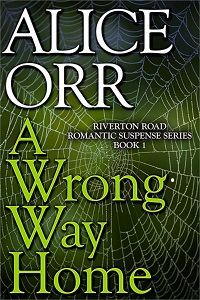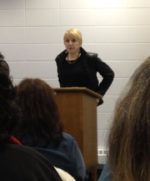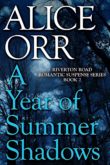Publishing’s Rocky Road Continues. You’ve completed your manuscript, revised it, polished it. You’ve followed the advice in my last post, Literary Agent Search Savvy. You’ve submitted to the right agents for you, not exclusively, but no more than six at a time. Now, as if out of bright blue nowhere, the anxiously awaited call or email has arrived. An agent is seriously interested in your work, maybe even a topnotch agent. Hallelujah! You think you have exited Publishing’s Rocky Road. Think again. Don’t get me wrong. A momentous thing has happened in your writing life. You have captured the attention of an agent, not an easy thing to do. Good agents don’t waste their short supply of time requesting work that has not genuinely attracted them. But this doesn’t mean you’re off Publishing’s Rocky Road. You have detoured onto its unmarked byway, the Wait-Wait-Wait Highway.
You think you have exited Publishing’s Rocky Road. Think again. Don’t get me wrong. A momentous thing has happened in your writing life. You have captured the attention of an agent, not an easy thing to do. Good agents don’t waste their short supply of time requesting work that has not genuinely attracted them. But this doesn’t mean you’re off Publishing’s Rocky Road. You have detoured onto its unmarked byway, the Wait-Wait-Wait Highway.
“I’ve already been here,” you exclaim. You have most likely traveled through a pile of submissions and a pile of rejections too, wait-wait-waiting what felt like eternities in between. The current view beyond your windshield may feel and look a lot the same, anxious and skimpy on roadside attractions. The order of the day is once again to Wait-Wait-Wait, and waiting periods are trying, in civilian life and in author life.
Console yourself first with this reality. You have already traveled the hardest leg of this adventure. You have conceived and created an entire book. A book that is attracting positive attention in the land of the publishing professionals. Do not ever underestimate that accomplishment. It is the foundation of everything to come, and it hasn’t crumbled so far.
So, why do you not feel consoled? No matter how far out of control you felt in your initial agent search submission phase, this new phase somehow feels more out of your control than ever. During that initial period, you dropped your work into multiple black holes, expected rejections and, when one came, made another drop into the next black hole on your list. It was something to do. Now there is only a single repository and nothing to do but, you guessed it, wait-wait-wait.
So, how do you keep from losing your mind? Right here, I’m going to say something that sounds so lame, so Pollyannaish you will want to climb through the screen and wring my neck. To jeopardize my neck even further, I must preface that something by agreeing with you. This phase of your struggle to become published feels so far out of your control because it is. And, here comes the I-get-throttled part. You must simply let go and travel on.
What did she say? I said you must let go of longing for control and let your work find its way. Harder still, you must have confidence that it will. While you attempt, however imperfectly, to build this confidence, turn to your first powerful resource, the rest of us, your writer friends in your writers’ community. We are your shoulders to lean and/or cry upon. Whether you need a strategy session, a consult, or just a boost in the spirits-up department, we are here.
Next, get back to work. If you’ve not already done so, dive deep-down into your next book or continue your series. Professional authors are forever moving on to the next project, which keeps us from bogging down with anxiety over the one that’s out there in the publishing world ozone. It also guarantees we will have a continuing career, bent upon producing a shelf load of books eventually. Disciplined forward momentum prevents, or at least lessens the severity of, running out of fuel along Publishing’s Rocky Road.
Never forget that you are tenacious. You have traversed this far on an obstacle-strewn path. From that process, you have forged your own personal template for doing so again and again with each new project. Have faith that will be the case, and take my word as well. I have watched it happen with countless authors, including myself.
In the meantime, there is the joy of the doing. The joy of the writing work, at every stage of its challenging course. You are on that course, moving along it, as well as deeper into it. Publishing’s Rocky Road Continues, but you, with fire in your belly, are ready for the ride. Bon voyage.
Alice Orr – www.aliceorrbooks.com
A Wrong Way Home – Alice Orr’s Riverton Road Romantic Suspense Series Book 1 – is a FREE eBook HERE. Enjoy!
Alice’s latest novel – A Time of Fear & Loving– Riverton Road Romantic Suspense Series Book 5 – is available HERE. Praise for A Time of Fear & Loving. “Alice Orr is the queen of ramped-up stakes and page-turning suspense.” “Warning. Don’t read before bed. You won’t want to sleep.” “The tension in this novel is through the roof.” “I never want an Alice Orr book to end.” “The best one yet!” “Budding romance sizzles in the background until it ignites with passion.”
Look for all of Alice’s books HERE.
https://www.facebook.com/alibettewrites/
http://twitter.com/AliceOrrBooks/
http://goodreads.com/aliceorr/
http://pinterest.com/aliceorrwriter/








